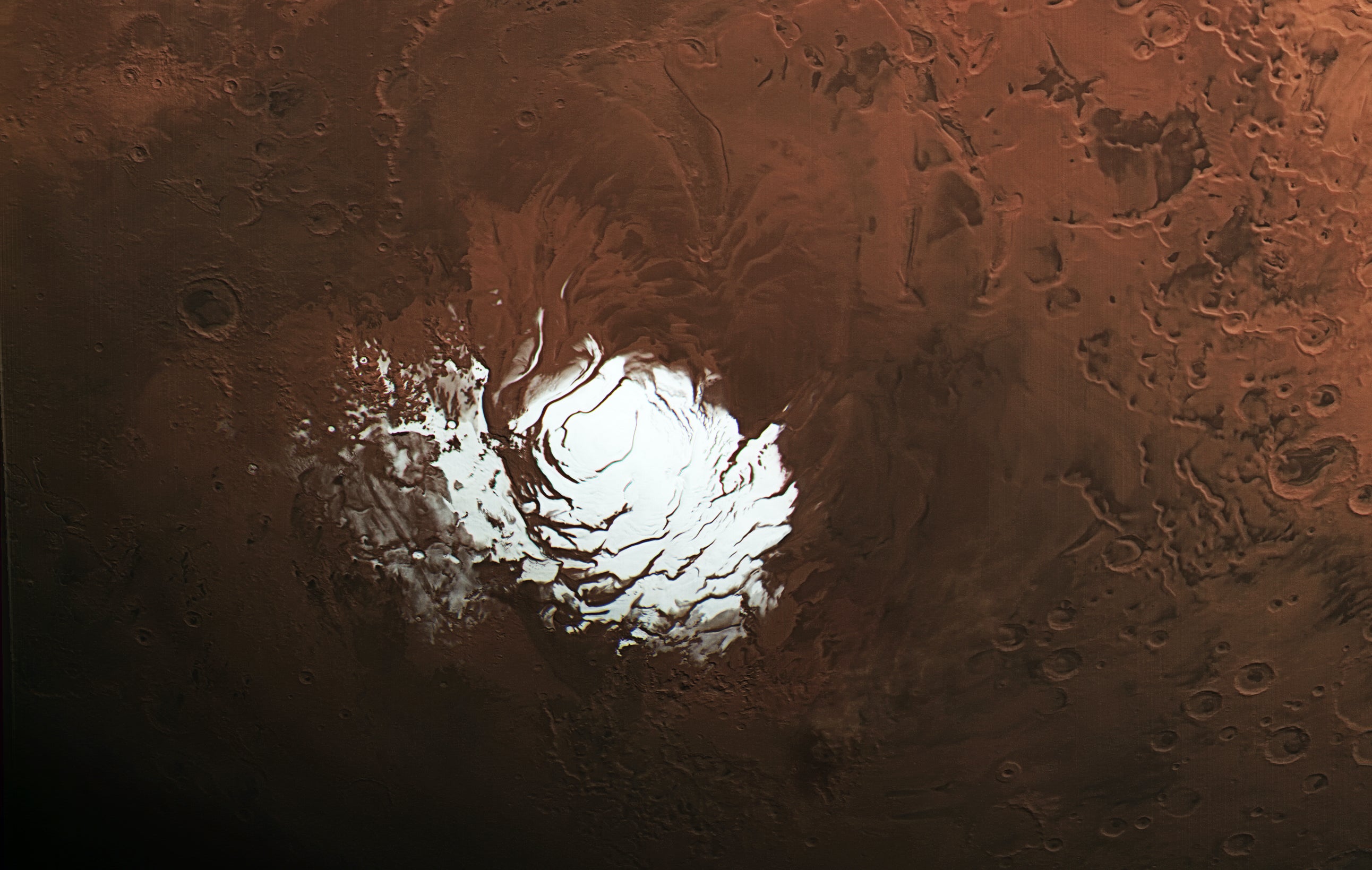Mars reflections that suggested there is water on surface of red planet may be just an illusion, scientists say

Sparkling reflections on Mars that led to hopes of water on the planet might actually have just been an illusion, scientists have said.
In 2018, researchers spotted bright reflections under the Martian south pole. They speculated that they were seeing water, leading to hopes that there might actually be stable liquid water on the planet’s surface.
But new research suggests that it is actually an illusion, and the reflections are seen in volcanic plains right across Mars. The reflections are more likely to be from volcanic rock, buried under ice, according to a new study by scientists at the University of Texas at Austin.
The current temperature and pressure makes stable liquid water unlikely at the planet’s surface, researchers have said.
Lead author, Cyril Grima, a planetary scientist at the University of Texas Institute for Geophysics (UTIG), said: “For water to be sustained this close to the surface, you need both a very salty environment and a strong, locally generated heat source, but that doesn’t match what we know of this region.”
The south polar mirage dissolved when scientists added an imaginary global ice sheet across a radar map of Mars.
They found that the imaginary ice showed how the planet would appear when looked at through a mile of ice.
This allowed them to compare features across the entire planet with those under the polar cap.
Mr Grima noticed bright reflections, just like those seen in the south pole but scattered across the planet.
And many matched the location of volcanic plains.
Iron-rich lava flows on Earth can leave behind rocks that produce similar reflections.
The scientists suggest other possibilities include mineral deposits in dried riverbeds.
But even if there is no liquid water on Mars, there is plenty of ice on the planet.
Isaac Smith, a Mars geophysicist at York University, believes the bright radar signatures are a kind of clay made when rock erodes in water.
He said: “I think the beauty of Cyril Grima’s finding is that while it knocks down the idea there might be liquid water under the planet’s south pole today, it also gives us really precise places to go look for evidence of ancient lakes and riverbeds and test hypotheses about the wider drying out of Mars‘ climate over billions of years.”
The study, published in the journal Geophysical Research Letters, is based on three years of data from Marsis, a radar instrument launched in 2005 aboard the European Space Agency’s Mars Express.
Additional reporting by Press Association
Subscribe to Independent Premium to bookmark this article
Want to bookmark your favourite articles and stories to read or reference later? Start your Independent Premium subscription today.

Join our commenting forum
Join thought-provoking conversations, follow other Independent readers and see their replies